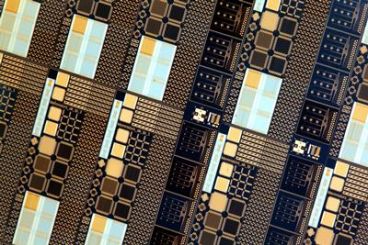The Chinese state fund is boosting the firepower of its all-important chipmaker SMIC amid a high-stakes 'chip war' with the United States. China's Semiconductor Manufacturing International Corp said on Thursday it will build a $2.35 billion plant with funding from the provincial government of Shenzhen.
The proposed plant will be able to produce silicon of 28 nanometers or above, SMIC said in a stock exchange filing, Bloomberg reported.
The US had blacklisted SMIC last year alleging links with China's People's Liberation Army. The move to slap the ban on SMIC was taken by former President Donald Trump in the dying days of his presidency. The Trump administration said there was evidence for links between SMIC and Chinese military industrial companies. SMIC has denied the charges.

Catching Up with US
The US had also taken stringent action against a range of Chinese tech companies including Huawei and ZTE Corp, accusing them of posing security threat. However, China believes that the US is aiming to cripple its rise as a global technological leader. Beijing also accuses Washington of trying to weaponize trade in order to win strategic goals. It also says the US is trying to resort to unfair means to retain its edge as a global technology powerhouse.
These moves underscored China's need to catch up with the US chip superiority and become more self-sufficient amid a global chip supply crunch. The coronavirus pandemic had exposed the chinks in the Chinese armor as a deepening semiconductor shortage impacted many Chinese tech companies.
On Thursday, SMIC said impending chip shortages would negatively affect Chinese businesses. SMIC is a major semiconductors provider to key Chinese companies like Huawei. Analysts said in September that a US clampdown could even threaten the existence of SMIC.
Production at New Plant to Begin by 2022
Under the new project, production would begin by 2022 and the company would be eventually able to produce 40,000 12-inch wafers a month, the report said.
"The shortage in chip manufacturing capacity is very real and the situation could deteriorate in 2021 and 2022 if Chinese companies don't speed up expansion," SMIC Senior Vice President Zhang Xin said, according to the report.
Why is SMIC Important?
SMIC is the largest Chinese chip manufacturer, and by blacklisting it, the US wanted to deal a heavy blow to China. While many US businesses will also be affected by the blacklisting, SMIC would be hit hard as US companies and suppliers would be barred from giving it American-based tech.
Apart from taking punitive action against China's chip giants, there has been effort in the US to set up more advanced semiconductor factories within the country, in order to retain the global advantage in this crucial segment.

However, it was pointed out that the move would also play out to the advantage of Taiwan Semiconductor Manufacturing Co, which is the world's largest chipmaker. Alongside SMIC, China has some other major companies involved in semiconductors, such as Tsinghua Group, HiSilicon of Huawei and Cambricon Technologies Corp.
The US has had near total control over the semiconductor industry in the last several years, maintaining nearly 50 percent of the market share in revenue terms. The country is home to more than half of the 15 largest semiconductor companies in the world.
In comparison, China has been vastly dependent on semiconductor imports in order to meet the ever growing needs of its burgeoning tech industry. China's drive to match up with the US and Taiwan's prowess in semiconductors is fueled by the realization that its huge tech industry needs self-reliance in chips in the long term.









